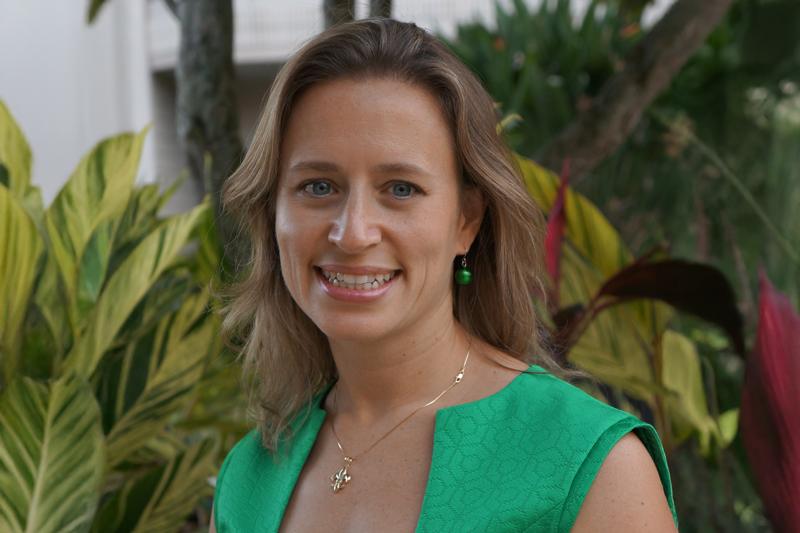-
About
- Departments & Offices
-
Academics
- Public Health
- Biomedical Sciences
- Physician Assistant
- Special Master’s (MBS)
-
Admissions & Financial Aid
- Tuition & Fees
-
Student Experience
-
- Student Resources by Program
- Academic & Student Support
- Wellness & Wellbeing
- Student Life
- Events & Traditions
-
-
Research
- Research Labs & Centers
- Tufts University-Tufts Medicine Research Enterprise
-
Local & Global Engagement
- Pathway & Enrichment Programs
- Global Health Programs
- Community Engagement
Robin E. Galley, PT, DPT: Innovating Hybrid Education in Physical Therapy
Galley’s research is paving the way for innovative hybrid models in DPT education.

Robin E. Galley, associate professor and co-director of student affairs in the Tufts University School of Medicine Doctor of Physical Therapy (DPT) program in Boston, is an influential researcher in the field of hybrid education for DPT programs. With a focus on enhancing clinical education and ensuring equal preparedness for all students—regardless of learning format—Galley has contributed to groundbreaking research aimed at improving hybrid learning models, which have become a critical tool in DPT education.
"Hybrid education offers a unique opportunity to meet students where they are, providing flexibility while maintaining rigorous standards that prepare them for licensure and practice," she said.
The Evolution of Hybrid Education in DPT Programs
Galley’s research journey began in 2012 when she became part of the first fully hybrid DPT program in the United States. From the start, she was deeply involved in exploring how hybrid education could provide a flexible and accessible path for students unable to attend traditional programs. Her early work centered on ensuring that hybrid students would be equally prepared for licensure and practice as their traditional counterparts. This led her to focus much of her research on how hybrid DPT programs could offer a new delivery model to meet the needs of students while ensuring rigorous academic standards.
Today, hybrid programs, including accelerated options like those at Tufts DPT, have seen rapid growth. Galley’s research continues to help guide these programs in offering both flexibility and academic integrity for students navigating the challenges of modern life.
Innovative Research on Clinical Education Outcomes
A key area of Galley’s research has been focused on clinical education within hybrid DPT programs. With her background in clinical education, Galley recognized the challenge of ensuring hybrid students received the same quality of clinical training as those in traditional programs. She spearheaded a study comparing clinical outcomes between students in hybrid and traditional DPT programs.
The findings were revealing. Despite hybrid students having fewer short-term integrated clinical experiences—around two weeks compared to several weeks in the traditional program—there was no significant difference in their clinical outcomes during their first full-time terminal clinical experience.
"Our research shows that hybrid students, despite having fewer short-term clinical experiences, are equally prepared for full-time terminal clinicals, demonstrating that quality education isn’t confined to a traditional setting," she explained.
This outcome was a breakthrough, as it suggested that the traditional model's extensive short-term clinical placements were not as essential as previously thought. Galley’s study led to a reduction in these placements in the traditional program, streamlining clinical education and easing the strain on clinical sites, which were struggling to accommodate the increasing demand for placements.
Impact of Hybrid Learning on Student Success
Through her research, Galley has demonstrated that hybrid education can provide equal opportunities for students to succeed in clinical settings, even with a different delivery model. One of the key benefits of hybrid education is its ability to offer flexibility for students, allowing them to balance their studies with personal and professional responsibilities, such as travel or family commitments. Her research supports the idea that flexibility in learning does not compromise the quality of clinical preparation.
Preparing Students for Licensure: Addressing Key Challenges
Galley’s research also focuses on the challenges DPT students face as they prepare for licensure exams. She emphasizes that students need effective strategies for organizing their studies and targeting areas where they feel less confident. In her role as Co-Director of Student Affairs, Galley is focused on ensuring that Tufts DPT students have access to the resources and support necessary to succeed, while holding the program to the highest standards of professionalism and academic excellence.
"At Tufts, we are committed to ensuring that every student has the resources and support they need to succeed, while holding ourselves to the highest standards of professionalism, compassion, and altruism," she said.
Future Research and Initiatives
Galley’s ongoing research aims to further improve the hybrid DPT model and explore how it can be optimized for student success, especially in clinical education and licensure preparation. She is currently working on initiatives that will help bridge any remaining gaps between hybrid and traditional learning formats, continuing to advance the quality of education for Tufts DPT students.
Joining the Tufts DPT-Boston Team
Galley’s work is not only about research but also about creating an inclusive, supportive environment for students. She is excited to be part of the Tufts DPT-Boston team, known for its knowledge, diversity, and collaborative spirit. Together, Galley and her colleagues are working to elevate the program’s reputation and impact, setting new standards for success in physical therapy education.
Relates Links:
Tufts DPT
Boston Program
Admissions Informations
DPT Clinical Education